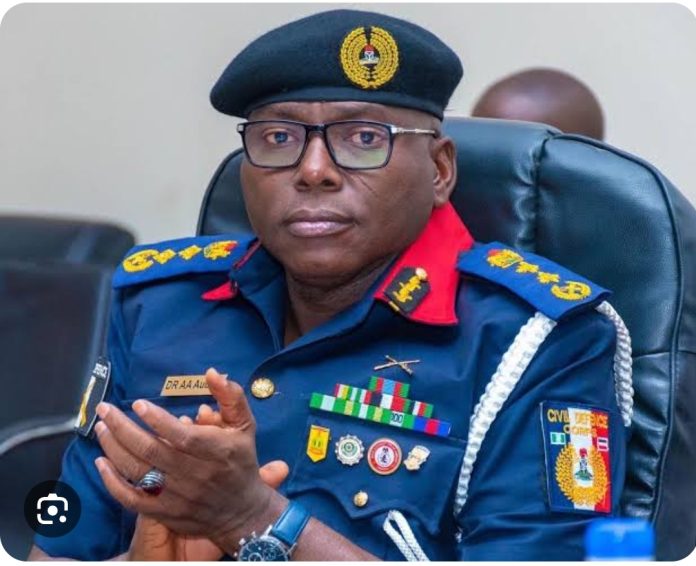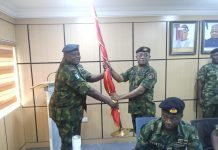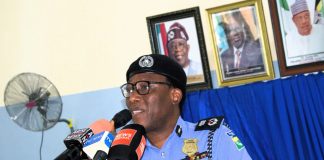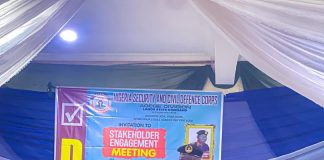The Commandant-General of the Nigeria Security and Civil Defence Corps (NSCDC), Dr. Audi Abubakar, has been applauded for keying into President Bola Tinubu’s Renewed Hope Agenda on security.
The Save Nigeria Movement (SNM) and Nigerian Students Resource Center gave commendation at a press conference in Abuja to acknowledge the role of the NSCDC in the security of schools and public infrastructure across the country.
In his address, convener of the groups, Solomon Semaka said President Tinubu has championed some of the most courageous initiatives to secure the nation.
According to him, that brave determination is already yielding dividends, typified in the NSCDC boss through laudable reforms such as the Safe School Initiative in response to the incessant cases of kidnapping and abduction of school children.
Read Also: SPONSORED MALICIOUS PUBLICATION AGAINST THE CNS, BASELESS, MALICIOUS – NIGERIAN NAVY
“Under the unwavering support of Mr. President, Nigeria has witnessed several result-oriented security initiatives across different agencies which has given rise to the peace we currently enjoy across the country,” he said.
“For instance, the NSCDC has revived and sustained the Safe School Initiative in response to the incessant cases of kidnapping and abduction of school children that became very rampant because of widespread insecurity, especially in the northern part of the country.
“This initiative has, since its inception, drastically reduced the incidence of school abductions as it has deterred criminal elements who once exploited the porous nature of most schools, especially in the rural areas for their criminal enterprise. With kidnapping of vulnerable school children for ransom almost over, Nigerian students are happily back to school thanks to the dogged determination of President Bola Ahmed Tinubu and joint efforts of security agencies. There’s therefore, every need to encourage the security agencies, especially by providing critical intelligence to enable them to respond proactively to threats.
“As a collective response to growing insecurity and its dynamism, the NSCDC and the Nigerian Police Force (NPF) have separately established the Commandant General’s Special Intelligence Squad (CG’s SIS) and the Inspector General of Police’s Special Intelligence Squad (IGP’S SIS) respectively. These initiatives serve to buttress the central role played by intelligence gathering in securing lives and property. These units have been functioning effectively and have led to high-profile successes including the thwarting of kidnapping attempts and other criminal operations across the country.
“Intelligence sharing has also become much more easier through the establishment of these Special Special Units manned by incredible professionals. A synergy between the intelligence units of all the security agencies and military formations in the country is indeed what Nigeria needs to fight terror and insecurity headlong.
“Another feat worth mentioning is the establishment of a Special Female Arms Squad by the NSCDC. The initiative has shown that women have what it takes and given the right training, motivation and opportunity. The Female Arms Squa having undergone thorough training has assumed very strategic roles and is bringing glory to the country and restoring peace in troubled communities across the country.
“Also worthy of note is the joint intervention of the NSCDC and other sister security agencies in the Niger Delta region which has brought a reduction to crude oil theft and the vandalization of critical oil and gas installations in the region in line with Mr. President’s economic recovery plan which has increased Nigeria’s crude oil output tremendously. Several illegal mining sites have also been destroyed across the country, saving Nigeria millions of dollars. Indeed it appears security personnel across the board have shown great commitment in the discharge of their duties.”
The groups, however, urged Nigerians to shun all forms of propaganda intended to demoralize our security personnel as well as create fear among the citizens.















